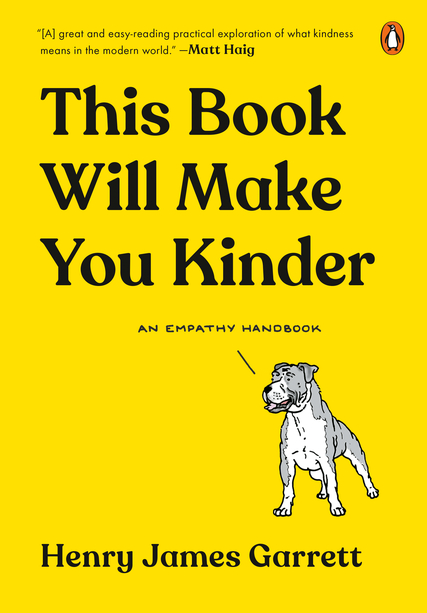Review - This Book Will Make You Kinder: An Empathy Handbook
Book by Henry James Garrett (https://www.henryjgarrett.com/)
This book couldn’t have been more timely, in terms of its relevance in the happenings around the world, and also in terms of when I got my hands on it: fresh off the shelves at Kinokuniya! I probably wouldn’t have gotten this book if not for the warm hug from this book’s cover, and since I’m a sucker for clever designs and colors, there’s no way I’d give this a pass. I digress.

If the book cover is any form of a precursor to what follows, it perfectly encompasses the witty insights that are accompanied by Garrett’s cleverly-inserted comics. Indeed, this insightful book sets out to explore empathy in its relevance in modern living, and answers the two questions that Garrett claims are central to our understanding on empathy:
- Why are we kind at all?
- Why aren’t we kinder?
My favorite insight was Garrett’s observation that empathetic behaviours allowing us to feel and understand are innate to all humans: just as our ancestors make use of empathy to improve their collective preservation as a community, our modern society requires us to use it for the same purpose: to progress together. This key observation is underscored by apt citations of human rights concerns and pressures that marginalised communities today are embroiled in.
With this, Garrett then goes on to put forth that humans make “empathy-limiting mistakes” that suppress their ability to demonstrate care and concern, including willful ignorance, false beliefs and moral justifications by adhering to rules as far as our social contract dictates. The majority of the book is then dedicated to address these mistakes that cause a lapse in empathy.
Perhaps most distinct when compared to other books attempting to address empathy or the lack thereof, Garrett chooses to develop his observations and support these insights solely with relatable anecdotes instead of interweaving it with more rigorous evidences drawn from scientific methods. I suppose this is a deliberate design choice given the tone this book is set in, and this choice proves to be effective in bringing across these very insights that make this book a fantastic read. Of course, these real-life examples are made relevant by Garrett’s outspoken nature towards issues of social injustice, LGBTQ+ identities and mental wellness, amongst other concerns that demand our empathy for progress.
Towards the end, the flow of the book leaves the reader feeling that he, too, have a natural sense of empathy, and he then calls on the reader to act upon his moral instincts in his daily life. Garrett also paints the optimistic picture that since an empathy-limiting mistake is merely a “mistake” (this does not mean it affects others in a trivial manner!), these mistakes can be ironed out through practising this very value that humans are endowed with. Of note, Garrett’s chief focus in this practice is to listen, and this is crucially highlighted at every section of the page. Surely, if one were to have only one takeaway from this book, it would be to actively listen and be aware of the injustices that face people in marginalised communities.
The ending of this book has had the greatest impact to me across all literature I have read on the concerns of empathy. Garrett makes the concession that demonstrating empathy comes at a cost of the personal (and selfish) comfort that the privileged so enjoy without confronting these injustices head on, but proffers the picture that empathy is the antidote to ignorance.
As Garrett puts it,
Your empathy, once unbounded, will demand that you act to sacrifice your comfort to avert someone else’s agony.